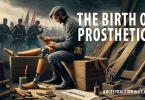Are you searching for more information on your Union soldier ancestor? There is plenty available online, from service records to pension requests, widow’s pensions and veterans census records. However, unless you are lucky enough to find a pension request with personal letters from your ancestor detailing his service (which do exist, but are the exception rather than the rule… most pension requests just include a questionnaire filled out by the applicant), you probably won’t get any additional detail on what his war experience was like. Understanding a soldier’s war experience makes it much more personal to you as a genealogist brings your ancestor and his times back to life in a virtual way, and puts his service in the historical context of the entire Civil War.
If you are eager to find out more intimate details of your Union ancestor’s service, you may have success with the federal government’s collection of Civil War medical cards. This is a little-known collection of records that are not yet available online, and it is only available for Union soldiers. Since they were part of the United States and the Confederacy technically was not, the records of Union soldiers were kept by the federal government and went to the National Archives, where they are still located today. This is a collection well worth exploring if you have an ancestor who served with the Union during the Civil War. It will give you details on his service you won’t find anywhere else.
What Are the Civil War Medical Cards?
The Civil War medical cards are records of a soldier’s health during his service in the Union. If a soldier was ever sick, injured, or hospitalized during his service, a medical card was generated. However, the information in the cards goes far beyond just these simple details. Within the cards is a wealth of personal information on your ancestor that can make him become a three-dimensional, real, living person again in your imagination, and will provide details that will create a much more rich, meaningful family history.
What Types of Information Can Be Found in the Cards?
The cards are very detailed and include such information as:
- What illness or injury the soldier had
- What treatment was rendered
- Whether they recovered, were sent home, were disabled, or died
- Detailed doctors’ notes on the treatment of the soldier
- Detailed notes on the soldier’s stay at the military hospital, if he went to one
- Items that were among a soldier’s personal belongings (this information is included in military hospital admission records in the cards)
- Information on the nearest relatives and family of the soldier
While not every medical card will have every piece of information listed above, many of them will. Most of them will contain at least the first four to five items on the list. There is a wealth of information to be found in these cards, and it is not recorded anywhere else in any other record collection (unless a soldier wrote letters home that have this information and your family still has the letters, or if the soldier wrote an autobiography containing this information).
How to Access the Cards
You can access this collection in person at the National Archives in Washington, D.C. If you can’t make a trip there, you can also request a copy of your ancestor’s medical card by writing or emailing the National Archives with his name and regiment number. Not every soldier has a medical card, because not every soldier got sick or injured. However, the National Archives will look at your request, and send you a copy if a card is found.
How to Find Your Union Ancestor’s Regiment Number
While the National Archives could probably find your ancestor’s medical card just with his name and the state he lived in, you will get much quicker and more accurate results if you have a regiment number. After all, there could be more than one soldier with your ancestor’s name that lived in your ancestor’s state.
There are a few places online you can look for a regiment number (which is usually also accompanied by a company letter). Ancestry.com is one. They have an extensive collection of Union Civil War service records. If you search their collection and find your ancestor, the regiment number and company letter will be on their record. You can also find this same collection, with even more service records included, at Fold3.com. Fold3.com has a more extensive collection because they partner with the National Archives (which has the originals) to provide this information to subscribers. You will also find Union pension requests and widows’ pension applications at Fold3.com, and these records will also have the regiment number and company letter on them.
You may sometimes be able to find Union service records on state websites within USGenweb.com, but this is hit or miss. Because it’s a free site, it’s worth taking a look, just in case your Union ancestor’s record is there.
Civil War cards for the Union are an underused record collection that is not very well-known. Yet, these records contain so much personal information on your Union ancestor, you would be remiss to ignore them in your genealogy research. So, start looking for that regiment number and company letter. Then, request your ancestor’s card and see what mysteries it solves for you.
- Contact the National Archives and Records Administration.
- Military personnel records, including medical records, may be found at these NARA locations.
- Military Records (Free Lookups)






